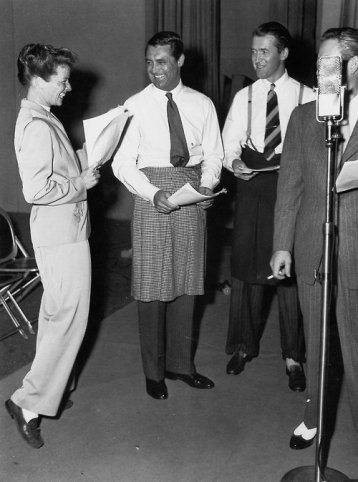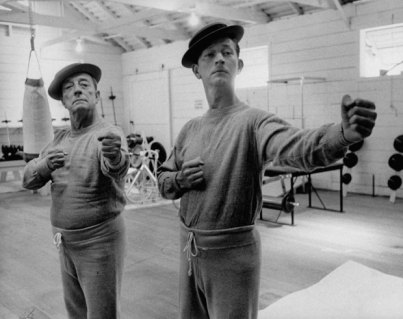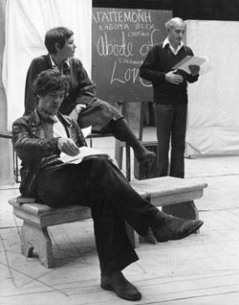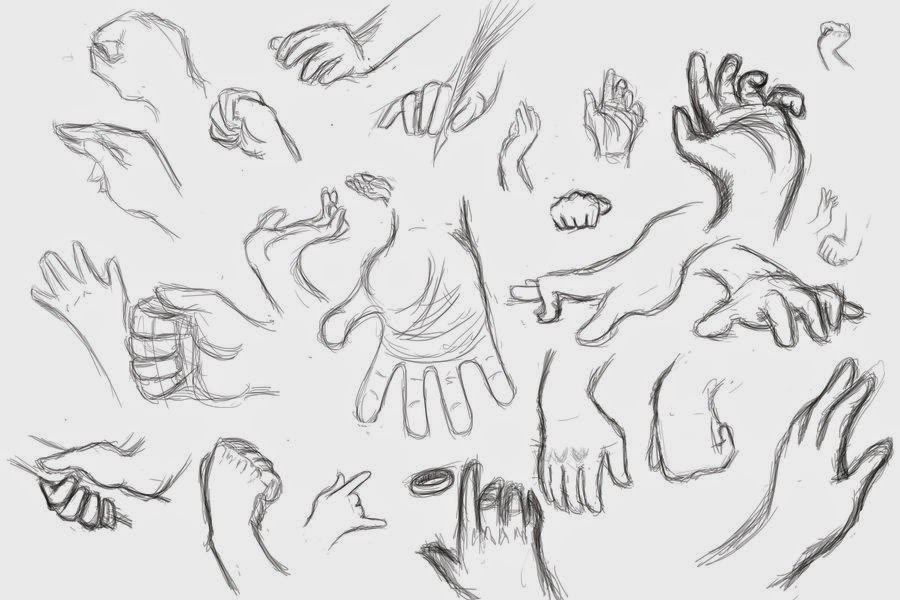CLICK THE PIC!
Sunday, May 25, 2014
KNOW the Straight Man
The lesser known part of the comic team, and a skill every musical performer MUST know…
Friday, May 23, 2014
Why You Didn’t Get Cast
Here’s an excellent article on the casting process I found here: http://bittergertrude.com/2014/05/21/why-you-didnt-get-cast/

2. Your skill set isn’t developed. [In other words, you haven’t developed your CRAFT!]This is the second most common, and the one people like to think of as “not good enough.” That way of thinking is total bullshit. How do I know? Because year after year, I see actors grow and develop. I see actors go from maaaaybe having the skills to handle a small supporting role to being ready to carry a play in one season. Either they took a class that unlocked something, or worked with a director who stretched them, or went on a spiritual quest in the New Mexico desert, or had mind-blowing sex with Ian McKellen, whatever. But I see it happen all the time, because dedicated actors are constantly working on their skillset.
WHY YOU DIDN’T GET CAST
A few days ago, I had two conversations almost back-to-back. One was with an experienced and talented actor who believed they were getting the message that their career was over just because they were in a dry spell. The other was with yet another Bay Area actor whose career had stalled the minute they went AEA. While we talked about the many reasons why that happens, this actor said to me, “I want to see if I’m good enough to be an AEA actor.” And my heart just broke because, as someone whose life is always on the other side of the table, I know how seldom casting is purely about who’s “good.” I hate that experienced, talented actors can see whether or not they get cast as a measure of their intrinsic worth as actors.
So here you go, actors of the world. The pure, unvarnished truth about why you didn’t get the role.

Katherine Hepburn, Cary Grant, and Jimmy Stewart performing Philadelphia Story for Victory Theater, 1942.
1. MOST COMMON: You’re just not right for it. I know this sounds like a massive, shit-eating cliche, but it’s absolutely the truth. A director walks into the room with a character conceptualized in a certain way, and is looking for the person whose type or energy matches the character. The truly amazingly badass Leslie Martinson of TheatreWorks taught me this years ago, when I was first starting out: Every conceptualized character has thirteen adjectives that describe them. Every actor has thirteen adjectives that describe them. Casting is about finding the best match. I pass over actors I flat-out adore all the time because the fit isn’t right. For example, a director might have Orlando conceptualized as a man in his 20s with a gentle, soft-spoken energy, while your audition presents a man in his 30s with a bright, aggressive energy. While your audition might be fantastic, you’re not going to be that director’s Orlando.
3. The role was precast. Some directors are superstitious and will read people for roles that are already cast. It’s unfortunately common for actors to commit to roles that they later bail on (a better-paying gig, a family emergency, a medical situation), and if you auditioned other actors for that role, you have some go-to options. One casting director told me she was so superstitious that she didn’t get rid of the casting data for a show until it CLOSED. On the flip side, lots of theatres are upfront about which roles are precast. Don’t let that necessarily discourage you. You may want to consider coming in for a show where your dream role is precast– you may end up playing that role after all.
4. The role went to someone they’ve worked with before. This is incredibly common. You know an actor’s work, you have a shared language, you understand how to work together. A known quantity is less of a risk, even if the known quantity didn’t crush the callback like you did. The director knows from past experience that the other actor can give them what the work needs.
5. You’ve had a history of behaving unprofessionally. Luckily, this one is extremely rare, but it does occasionally happen. Violating your contract (coming consistently late or no-showing to rehearsals or shows, for example), treating fellow actors or crew disrespectfully, making unreasonable demands (such as demanding the theatre violate their contract with the playwright so you can change something in the script despite the fact that the playwright declined to allow the change, or demanding the day off during tech because it’s your one year dating anniversary), deciding closing night is the time for GAGS! and IMPROV!, badmouthing the show on social media (“This play is going to be total shit!”). Although I’ve seen every one of these examples firsthand, they are, as I’ve said, pretty rare. The converse, happily, is MUCH more likely to be true– that we take a chance on an actor unknown to us because someone at another theatre is raving about how awesome they are. And believe me, I’m not trying to imply that this doesn’t happen in the opposite direction. I know plenty of directors treat actors in unconscionable ways. But that’s an entirely different blog post. My point is that, in any theatre community, companies share personnel. While we don’t necessarily go out of our way to share that kind of information, the Literary Manager at one theatre is directing a show at another theatre. The actor at one theatre is the Artistic Director at another theatre. What happens in Vegas, so to speak, does not stay in Vegas. But be happy that the converse is also true and much, much more common– we’re raving about how wonderful you are to our friends at other companies. I’ve sent many a “heads up” email to directors to let them know that an actor new to them and about to audition for them is someone I’ve worked with and believe in.
6. Conflicts. You may have been the best person for the role, but since you’re planning to be in Oklahoma for Baton Twirling Nationals during tech, they’re going to go with someone else.
7. You tanked the audition. Oh, man, this one is a heartbreaker, and I see it all the time. It’s one of the reasons I tell my students that the best way to cast is to see as many plays as possible so you’re seeing actors in their natural habitat. Auditions are weird little creatures, artificial and forced. However, if we want to open our theatres to new people and new communities (and we do), we’re stuck with open auditions. Like standardized testing, which only measures how good you are at standardized tests, auditions often measure how well you audition and little else. While callbacks are theoretically meant to correct for that, you don’t always make it to the callback to show them. I’ve seen plenty of actors give me a crap audition and then give a beautiful performance in someone else’s play. They had a bad day, or memorized a new monologue they thought would be “better” for the role the day before, or were too nervous.
There are a million reasons why a great actor would tank an audition. Don’t let it discourage you. Take an audition class or work with a coach if this is a common problem for you. Do what you need to do. But KEEP TRYING. Invite artistic directors and casting directors to see your work. Don’t give up! You won’t tank them all.
And that’s my main piece of advice: Don’t give up. If this is your dream, persevere! Nothing is insurmountable. FALL DOWN SEVEN TIMES, GET UP EIGHT.
Monday, May 19, 2014
KNOW the Interview
KNOW the Interview
Whether leading or supporting player, or even if you’re a ensemble member, over the years of your career almost surely you will be asked to talk to the
press. Like acting, being interviewed is a
craft, requiring both guessing and KNOWING how to respond to questions. The
key to interviews is to ALWAYS have
an answer to the following (insert your own name)…
“So, Burke Moses?”
Yes, I realize that is not a real question, but you’d amazed
how often it will be asked in one form or another. Most newspaper, radio and
television journalists are incredibly lazy. Local theater-beat journalists are
not exactly Jon Stewart when it comes to interview preparation. Often, they
have set list of questions, and rarely deviate from it. Most journalists make
the performer do the work, and frequently ask what can only be called, “non-questions.”
“So, “Guys and Dolls,” eh?”
“So, MUNY Opera, huh?”
Long before the interview, it is imperative you have a couple of answers to innocuous queries. All three non-questions above can be answered
the same.
YOU: Hi,
thank you so much for having me here! I’m thrilled to be working at (name of
theater), and ecstatic about playing (name of role) in (name of show)! I think
audiences are going to LOVE IT!
Interviewers almost always have a history with the theater, and it is
not always a good one. Many out-of-town interviewers will also critique the
show come opening night. Yes, this is conflict of interests, and sometimes the
interviewer/critic has declared open war on the theater, or have prejudices against the show.
“What’s it like being in the worst best
musical of all-time?”
That was the first
question asked by an interviewer when I was playing Trevor Greydon in Thoroughly Modern Millie. After winning
the Tony award for “best musical,” the satirical review Forbidden Broadway did a skit calling the production "the worst show
ever to be named ‘best musical.’” Obviously, the interviewer was using this quote as his “angle” for the story. This is a hand-grenade question; a negative query
mean to “stir up” the interview. It wasn’t hard to guess the upcoming review (“Millie,” the
worst musical is not so bad (or good)!”) The easiest way to avoid a negative
question is to completely ignore it.
“What’s it like being in the worst best
musical of all-time?”
YOU:
Hi, thank you so much for having me here!
I’m thrilled to be working at (name of theater), and ecstatic about playing
(name of role) in (name of show)! I think audiences are going to LOVE IT!
If the interviewer is belligerent,
he or she might repeat that question. Again, just ignore it (“I don’t know about that, but…”), and then launch into an anecdote. The key to interviews is to KEEP CONTROL of the process, particularly when the Q&A goes where you don’t wish it to go. Prior to any interview, it is essential to have several stories in your back pocket. These can be about the role, the audition, the
rehearsal process, performance, the theater or any interesting story from your show business
past, or up-bringing. If the interviewer hasn’t done any homework (frequently the case), try
and guide the questions toward your anecdotes, or ignore the question and just tell the story. If there is no escaping a
negative question, say nothing, smile, and just shrug as if you have no clue to
the answer. Never answer a question that might get you into trouble with the
theater, creative team or cast of the show.
Approaches for Different Mediums
1.) The single-camera TV interview is looking for
“sound-bites;” short, concise answers. Often, they won’t use a reverse shot of
the interviewer. Often they need the interviewee to repeat the question. and this takes a bit of practice to make it sound organic.
“Are you enjoying your
stay in (name of city)?”
YOU: I’m loving my
time in (name of city)! On the day off we visited…
2.) In a live (or taped) studio interview, you’ll be on set with two or three cameras standing before you. DON’T fidget! Just find an easy sitting
or standing position, fold hands in lap or try to appear relaxed. If
possible, ask what questions will be asked (often they will tell you prior.)
This gives you extra time to prepare. In live (or taped) television,
preparation is key. DEFINITELY have prepared anecdotes and quips. Work hard on your ad-libs, even though you might not get a chance to use them.
3.) In taped radio interviews the journalist holds a
recorder. Again, you’ll need to repeat his or her question during the answer.
Like the one-camera interview, they don’t want to add the question in editing.
“So, what’s it like
playing Maria in “The Sound of Music?”
YOU: Maria in “The
Sound of Music” is such a wonderful role, because…
4.) In live radio, you’ll be in the studio wearing headphones, and sitting close to the host. You still must look presentable, because frequently someone will take a photo and use it on the website. Although they seek
more than “sound-bites,” don’t expand too much on your answers. Brevity is the
key, yet don’t be too short with your answers. Don’t answer a question with only a “yes” or “no.”
5.)
“The Phoner” is an interview where either you call, or the interviewer calls
you at home. Here, looks don’t count. You can talk wearing only skivvies. Other than having anecdotes to tell, no other preparation is
required. Here, you can expound on answers, yet still try and keep answers brief.
6.)
In the “Email Interview” you will be sent questions. Before sending back responses, definitely use spell and grammar check.
If you do not have a flair for writing, ALWAYS have someone check your answers,
and even help you with writing.
A few Interview Do’s and DON’TS
-DON’T get into argument with the interviewer.
1 -No
matter how true it might be, never, EVER say anything negative about the
theater, the town where it’s located, the producing or creative team, the show or
fellow cast mates. Those who forget this rule always regret it. Everything about your show and the venue is “WONDERFUL!"
2 -Although
there will be many times you’ll have to answer extempore, NEVER come to the
interview empty-handed. Always have prepared stories to tell.
3 - Look
presentable. Check the mirror. Make sure no bats are hiding in the cave (things
up your nose), and no bra-straps are showing.
4 - Although
it’s sometimes difficult, SMILE! Try and have fun, even if the interviewer is
attacking you. In performance or when giving an interview, joy radiates! Other than talking seriously about a serious role, take nothing
too seriously. It’s theater not world peace.
- BE
CONCISE! Don’t ramble on. Interviews are not opportunities for you to give seminars or lectures. Remember, the more you talk, the greater chance you might accidentally say something idiotic.
-If you have multiple interviews for the same show, DON’T always tell the same anecdote (all your press will be the same). This is why to have several personal stories rather than just one or two.
-When in doubt, PAUSE before speaking. Some questions are difficult to answer, and knee-jerk responses are not always the best.
-If you flub an answer, garble or slur words, just start over. It happens, don’t worry about it.
-If you have multiple interviews for the same show, DON’T always tell the same anecdote (all your press will be the same). This is why to have several personal stories rather than just one or two.
-When in doubt, PAUSE before speaking. Some questions are difficult to answer, and knee-jerk responses are not always the best.
-If you flub an answer, garble or slur words, just start over. It happens, don’t worry about it.
6 - Starting
now, make purposeful effort to remove the word “like” from your everyday
vernacular. On camera or recording, performers that say “like”
five times on every answer come off as inarticulate and sophomoric. We are
actors. Language is our medium. Make conscious effort to speak well, and be
able to do so on cue, at any moment.
7 - Practice
reading aloud ten minutes everyday! Not only will this make you a better actor,
but reading aloud will help you speak concisely, as well as use complete sentences
during interviews, or when making any public appearance. Again, we’re actors.
Talking is our business, so make public speaking excellence a priority.
- When meeting the interviewer, ask THEM questions before starting (Where are you from? How long have you been writing, or doing television/radio work? I like that dress, Etc). People adore being asked questions, and love those curious about their mundane lives. It’s good to start the process off with interviewer that likes you. Otherwise, you’ll be fine if you’re always prepared to answer the question that so frequently stymies performers in interviews.
- When meeting the interviewer, ask THEM questions before starting (Where are you from? How long have you been writing, or doing television/radio work? I like that dress, Etc). People adore being asked questions, and love those curious about their mundane lives. It’s good to start the process off with interviewer that likes you. Otherwise, you’ll be fine if you’re always prepared to answer the question that so frequently stymies performers in interviews.
“So, Burke Moses?”
Have an immediate, interesting, humorous and/or compelling answer to that non-question, and you’ll have no problem during any interview
process.
Break a leg!
-Burke
Sunday, May 18, 2014
Subscribe to:
Comments (Atom)








